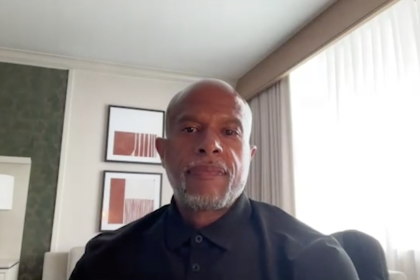
Cultivating a culture of coaching within an organization is quickly becoming the newest trend in managing employee engagement — and for good reason. Equipping managers and leaders with coaching skills can radically improve working relationships that are critical to building an inclusive workplace culture. Managers and leaders who are trained to use coaching skills are equipped to create an environment where team members’ contributions to the organization are valued. We recently spoke with Dr. Towanna Burrous, the founder and CEO of CoachDiversity Institute to talk about what a coaching culture is, how coaching is an effective method for employee engagement, and how it is approached and implemented today.
CoachDiversity believes coaching skills are essential to the advancement of diversity and inclusion within organizations because coaching helps develop each employee to reach their maximum performance. Managers who have scheduled coaching sessions and are consistently asking questions will gain a greater understanding and build greater trust with their employees. CoachDiversity’s primary business mission is to provide coach training and certification to managers and executive leadership to improve employee retention and engagement.
Dr. Burrous, tell us what is a coaching culture and what are its advantages in the workplace?
A culture of coaching first and foremost means a culture open communication. Poor communication and misunderstanding between managers and employees oftentimes is the poison that if left unattended, can lead to toxic work environments and disengagement. When managers commit to creating a culture of coaching, it can transform the quality of relationships in the workplace, and leads to skyrocketing engagement and productivity. This openness fosters a sense of community and shared purpose, and demonstrates to employees that they are valued and that their contributions are welcome.
Not only are open-door policies and setting aside time to regularly communicate with your employees important, the quality of those conversations are just as, if not more important. With a coaching culture and coaching training, managers can learn to develop an open, inclusive, growth-oriented mindset. Managers learn the communication skills necessary to learn more about their employees and to create the space for employees to offer ideas, raise concerns, ask questions, and speak frankly with their managers without fear of repercussion. These managerial coaching skills help employees feel they are valued and that their input will be heard. You have to be open and transparent and be able to say what you can and can’t commit to — every organization is bound by resources and time. But, just the fact that the employees are being heard, that they are being listened to is important and can improve retention.
What are two simple ways to start developing a coaching culture?
Make coaching available to employees (not just poor performers): employees have access to trusted coaching professionals so that they can talk through challenges, have a sounding board for decision points, develop leadership skills. This saves managers time because employees have already worked out concerns. When CoachDiversity works with clients, employees show improved communication with coworkers and managers, smarter contributions, and their satisfaction increases because their employers are willing to invest in them. Similar to a recent case study of an example of a successful internal coaching D&I initiative, GlaxoSmithKline’s Accelerating Difference Program.
Train executives and managers with essential coaching skills such as:
Growth planning – Explore career options and determine employee growth goals that align with current roles and the roles that they want. If they have clear objectives that include advancement opportunities, they will be more engaged in their day-to-day and more enthusiastic about taking on new challenges.
Development opportunities – After you’ve shown your employees career path options and have helped them plan their growth goals, develop programs that deliver tools and resources to help them grow. They can be as hands-on or hands-off as you want — just make sure they align with your culture.
Goal tracking – Show your staff how their goals align with their career paths and roles. Giving them context and demonstrating how taking action on a daily basis can help them grow professionally will improve employee retention and engagement. When you invest in your employees’ growth and center your culture on learning, your staff will be more engaged and ready to commit to your company.
Retention engagement – Retention starts right from the beginning, from the application process to screening applicants to choosing who to interview. It starts with identifying what aspects of culture and strategy you want to emphasize and then seeking those out in your candidates. It’s an increasing returns model; the longer someone’s with your company, the more productive they become over time. You have to look at this as a long game and take steps to ensure you’re doing it right by making sure each employee is completely engaged with and part of the company’s ongoing success.
Advancement opportunities – Promote from within whenever possible. Doing so will not only provide a clear, forward-looking path to greater compensation and responsibility, but it will help employees feel they’re valued and a crucial part of the company’s success as a whole.
CoachDiversity Institute will host its first Annual Symposium, “The Power of Belonging” on Sept. 27, 2018. in Washington, D.C. Learn more @ CoachDiversity.com or [email protected].
















